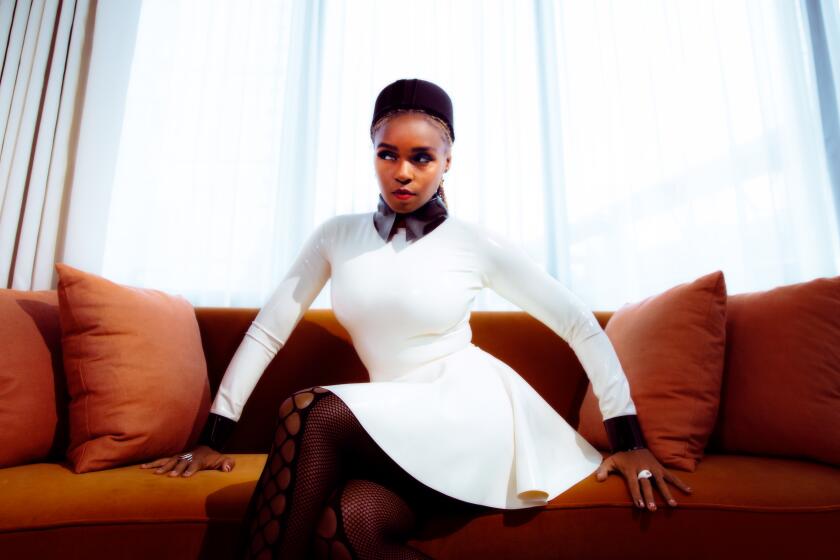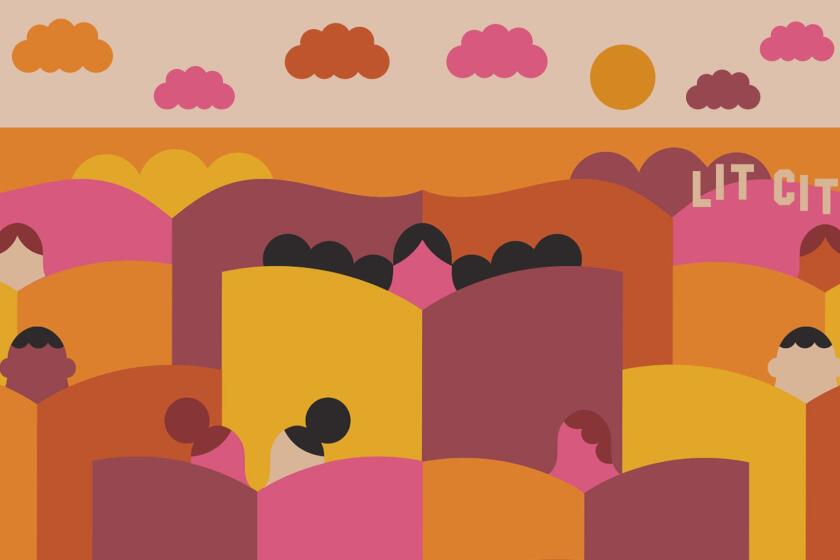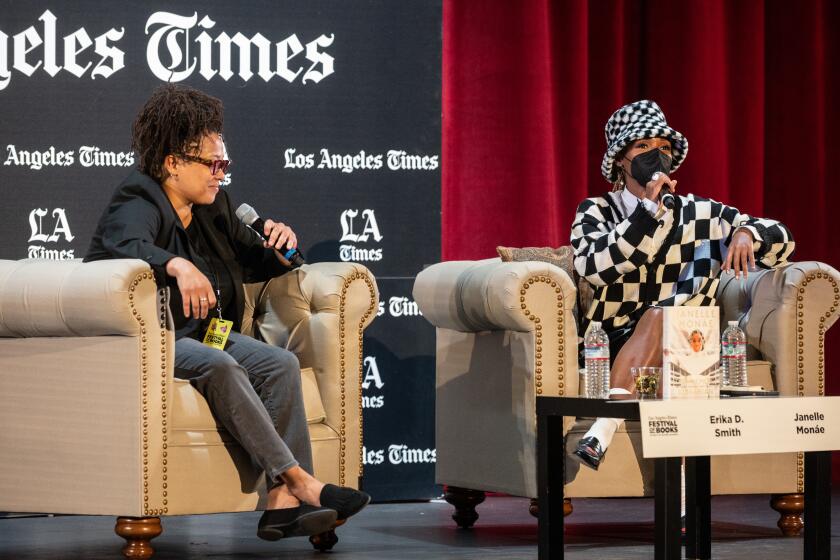L.A. Times Book Festival: Janelle Monáe feels like she’s living her ‘second Earth life’
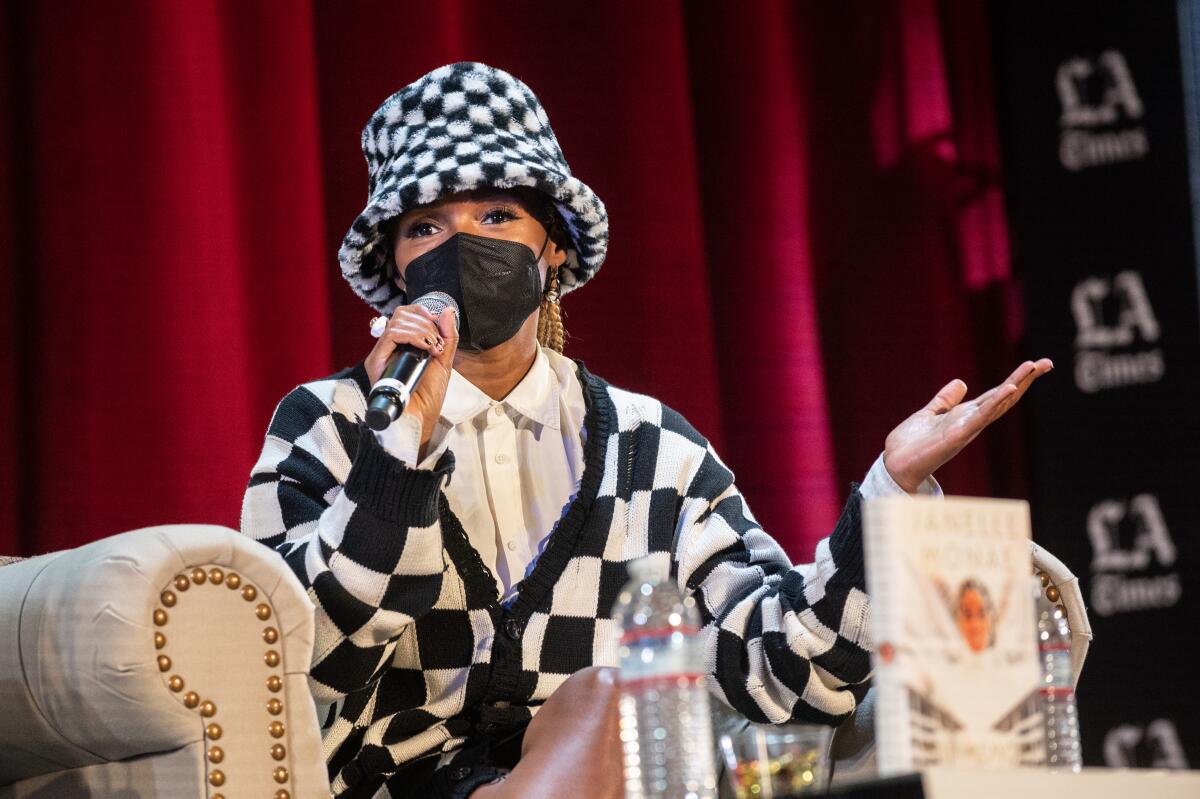
- Share via
Janelle Monáe has done it all. She’s an accomplished musician, activist, actor, fashion icon — and, with the release of “The Memory Librarian: And Other Stories of Dirty Computer” last week, a published author.
“I’ve been saying this on the road, but I feel like I’m on my second Earth life,” she said Saturday afternoon at the Los Angeles Times Festival of Books. She was joined by Times columnist Erika D. Smith inside a packed Bovard Auditorium at USC.
Monáe opened up about her struggles with feeling abandoned and rejected, which stemmed from her father’s crack addiction and absence from her life.
Zooming in from the future, singer and actor Janelle Monáe explains why she expanded her album ‘Dirty Computer’ into a cyberpunk story collection.
That was her first life, she added, “where you have moved through the world with certain traumas,” said Monáe. “I did a great job of hiding it, but eventually I just got sick of it. I moved through life missing a lot of moments as a result of that.” But she put in the hard emotional and creative work to recover. “Being on the other side, having healed from that, I feel like I’m a new-ass person.”
The audience cheered.
Throughout the hour-long conversation, Monáe — wearing a black-and-white checkered cardigan and bucket hat — discussed her relationship with science fiction and Afrofuturism, coming out as nonbinary, and what inspired her to write a short-story collection based on her album “Dirty Computer,” and a spinoff short film.
“There was so much that we wanted to say that we just couldn’t put it in the film and the album,” Monáe said. “And there was so much as a writer that we left off the table, and then the pandemic happened.”
Suddenly, her job as a performer traveling the world came to a screeching halt. “I was forced to sit down. Things stopped for me.” With more free time on her hands, she decided to pursue things she didn’t have the time to. Writing was one of them.
A guide to the literary geography of Los Angeles: A comprehensive bookstore map, writers’ meetups, place histories, an author survey, essays and more.
“But how did you get into Afrofuturism and science fiction?” Smith asked Monáe later. “It’s not necessarily a genre that’s designed for Black people.”
It began at a young age, almost unconsciously. “I love worlds,” said Monáe, who grew up reading R.L. Stine’s “Goosebumps” series. She recalled a short story she wrote in elementary school about a plant and an alien who communicated through photosynthesis and kicked her grandmother out of her home.
“That was exciting to me,” she said. But it wasn’t until Monáe became an artist that she learned about musicians like Sun Ra and writers like Octavia Butler — Black artists who pioneered the Afrofuturism genre.
Smith said she was struck by the book’s queer, Black women living their best lives. “Is this something that’s possible [in the real world]?”
“Yes, of course,” responded Monáe. “That’s what we were doing before all of this. Once you start learning about colonization, Indigenous communities, two spirits, about life before slavery, we were thriving. People who were identifying as men were wearing heels and skirts. If we look at fashion history, it’ll inform you how free people used to be... Those were memories that once were, and somehow even that has gotten erased.”
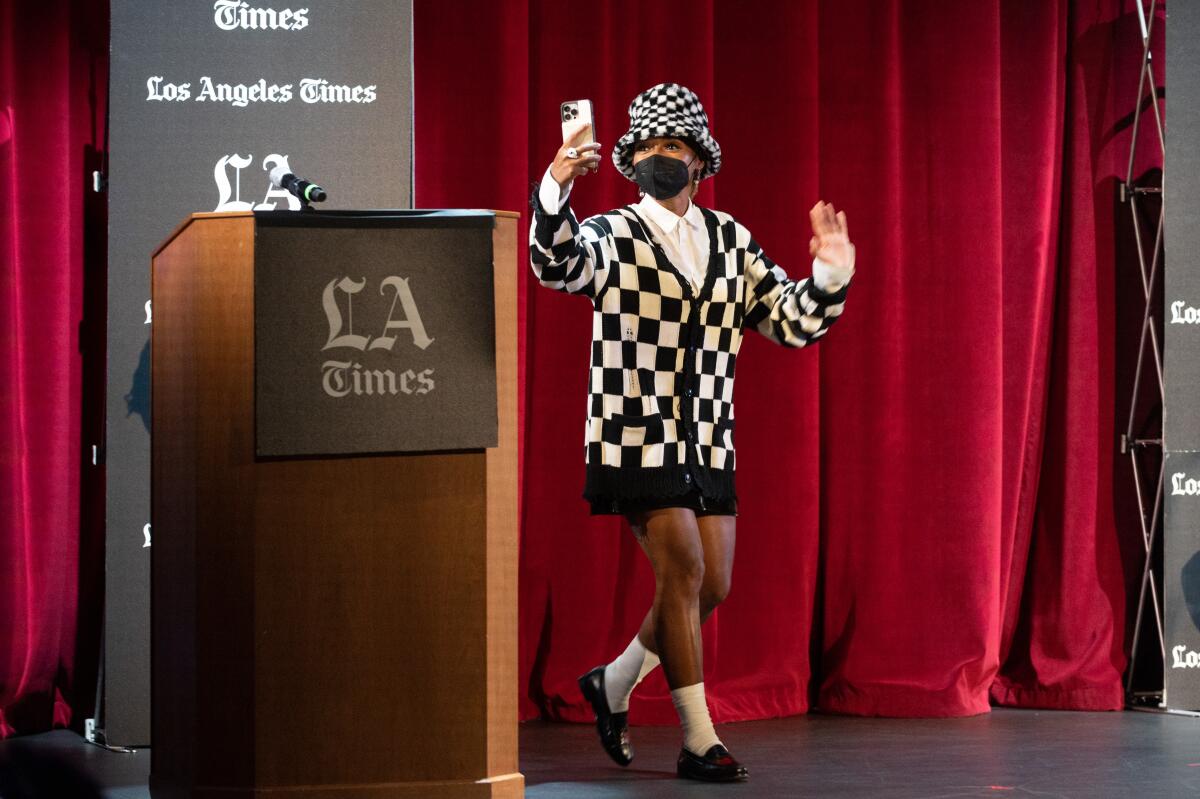
Before audience questions, Smith asked Monáe if she feels the pressure of being a cultural icon.
“I feel pressure putting on an outfit,” she responded. “That’s why I stick to black and white.” But over the years, she’s learned a valuable lesson. “I don’t give things power that I feel like shouldn’t be given power. Things become real when you give them power.”
Monáe said she used to fixate on fears of criticism and public embarrassment. “But I realized I can make a mistake... If Michael Jordan misses a free throw, is he still Michael Jordan? That’s something that I tell my nieces and my nephews. I’m like, ‘You can fall. That doesn’t take away — that helps build.’ That helps make you more relatable. So I like to keep my relatability.”
Panels, prizes and people — lots of them. Coverage of the L.A. Times’ first in-person Festival of Books since 2019 begins below.
More to Read
Sign up for our Book Club newsletter
Get the latest news, events and more from the Los Angeles Times Book Club, and help us get L.A. reading and talking.
You may occasionally receive promotional content from the Los Angeles Times.
